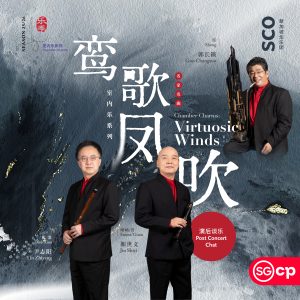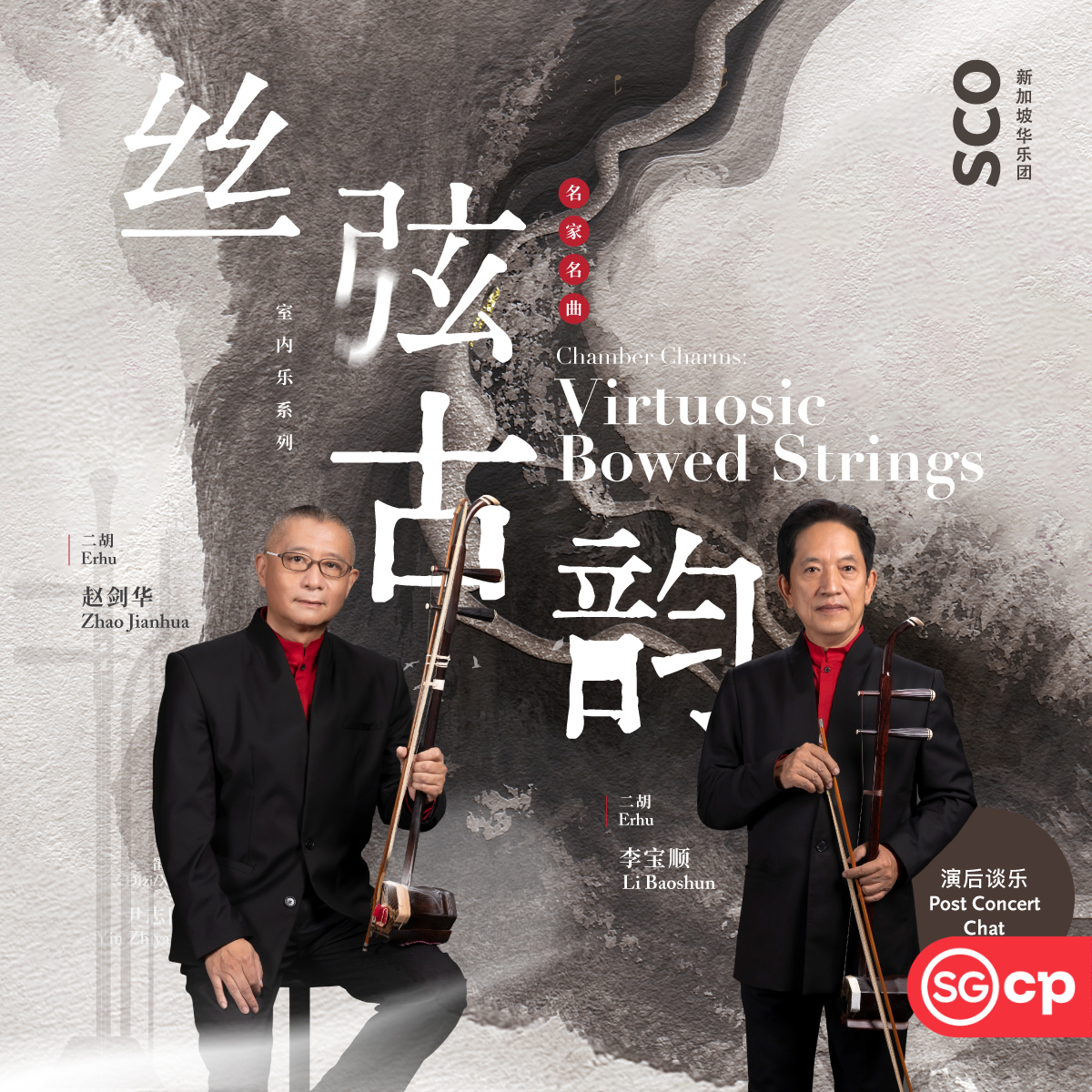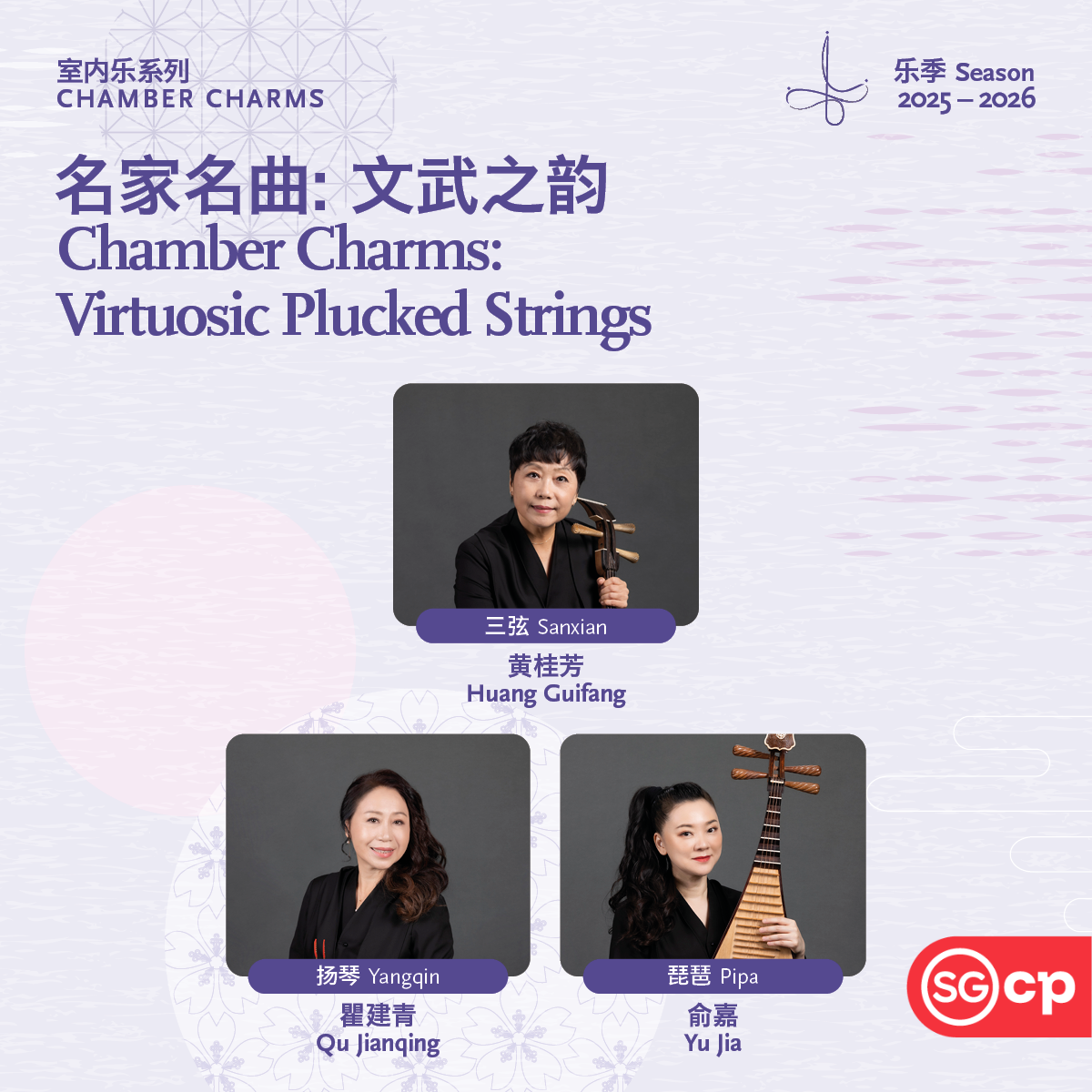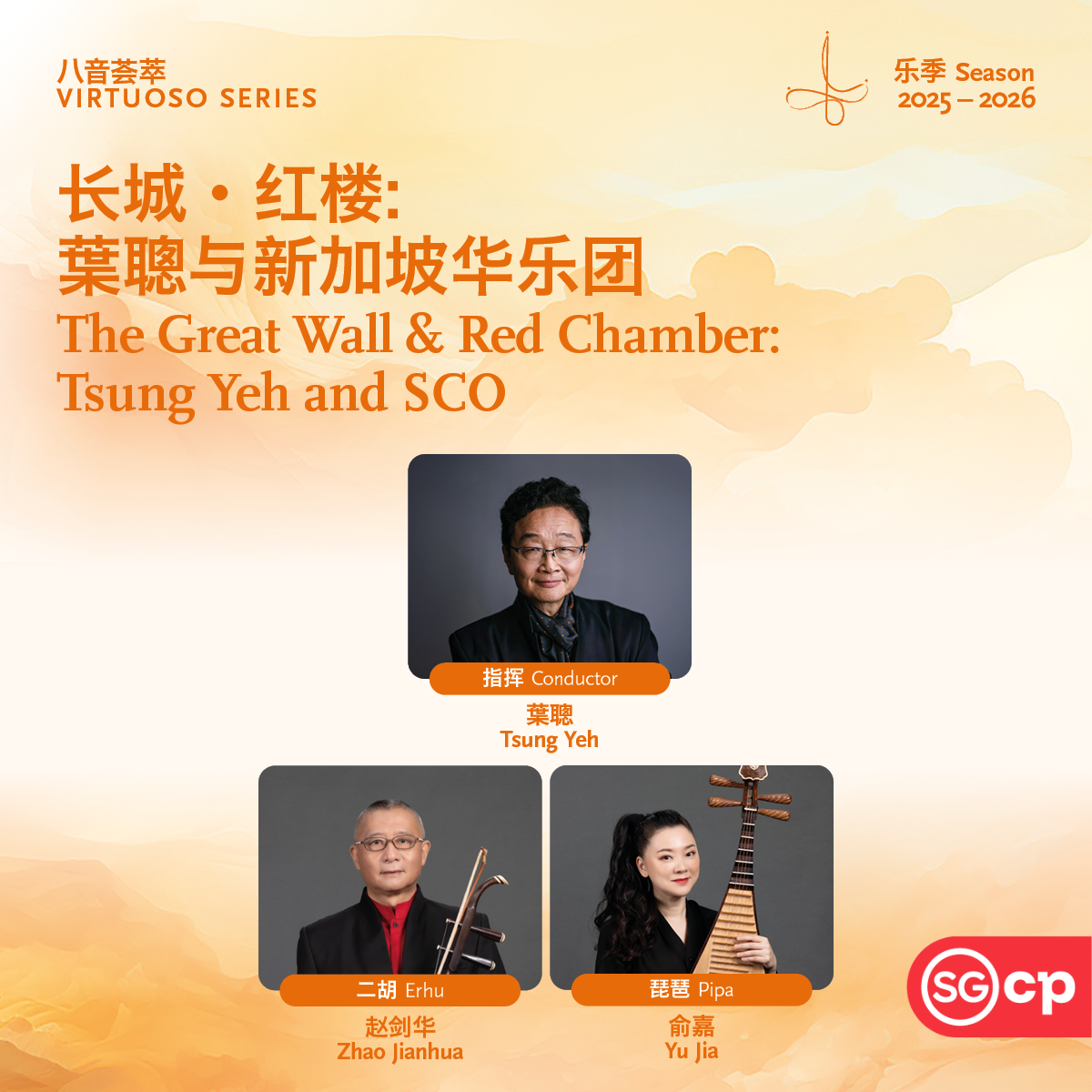Amid the quiet resilience of the pandemic years, the Singapore Chinese Orchestra (SCO)’s chamber concert series found renewed life in the intimacy and agility of small ensembles. This Chamber Charms: Virtuosic Winds concert brings the dizi, xiao, sheng and suona into a close conversation of 7 finely etched works, from solos to small ensembles, each distilling the essence of a region, the imagery of a culture and the unmistakable virtuosity of SCO’s own musicians.
The concert opens with The Alluring Span of the Peacock, a sheng solo composed by Yan Haideng in 1957. Inspired by folk melodies from northern Shanxi, the music unfolds in 5 vivid scenes that follow the peacock’s slow, sunlit unfurling of its plumage and its lively, playful steps. The sheng flows between glowing chords and a clear, song-like line, its voice brightened by quick trills, light double-tonguing, and graceful ornaments — keeping the folk melody’s warmth while showing the peacock’s elegance and life.
Next work, Autumn Yearning at the Dressing Table, an ancient melody reimagined by Du Ciwen as an intimate dialogue between xiao and guzheng. Drawn from a section of the pipa classic Song of the Frontier, it evokes the gentle homesickness of Wang Zhaojun, as a new arrival from beyond the Great Wall who paused by the river to arrange her hair. Du’s arrangement unfolds in 4 scenes — the vastness of the frontier, the grace of her adornment, the quiet ache of longing, and the plaintive tones of her solitude, blending the timeless elegance with finely shaded emotions.
The third piece, Farewell at Yangguan, is based on Wang Wei’s Tang-dynasty poem “Seeing Yuan’er Off to Anxi.” Its main theme returns 3 times, each more tender and reflective than the last, gradually easing into a calm, unhurried close. Whether played on qin, dizi or zheng, it conveys the quiet affection and goodwill of an ancient farewell.
Grand Prelude, adapted from a traditional Henan overture that was once used as a prelude to local opera performances with a burst of spirited energy. In this solo arrangement for sheng by Li Guanglu, rolling chords, flutter-tonguing and crisp tonguing patterns light up the quick tempo. Vivid and full of rustic colour, it brims with the sense of a lively stage just as the curtain sweeps open.
Partridges Flying draws on a Hunan folk tune with its title echoing the Tang poet Li Bai’s line that lends the music a tinge of historical longing. In Zhao Songting’s adaptation, the dizi traces the birds’ flight — now near, now far, rising and dipping, with the delicate embellishments of the Jiangnan silk-and-bamboo style. A lively finale adds a fast tempo and circular breathing that drive the music to a fiery close. Zhang Weiliang’s arrangement enriches the accompaniment and balances lyric grace with virtuosic display.
Tribute to Homeland is adapted from several labelled tunes of Henan province’s suona tradition. In Jin Shiyi’s arrangement, the flavour of Henan opera singing and its distinctive percussion patterns are kept intact. The moderato is mellow and resonant, while the fast and “flying” sections press forward with fiery momentum. Ornamentations such as slides, shakes, bends, and turns come in swift succession, making the work both a heartfelt salute to the homeland and a showcase of the suona’s expressive range.
During the late 1950s in China, ambitious national campaigns to boost production took off. Theme of Pioneers by Yu Huiyong and Hu Dengtiao captured the unshakable spirit of the pioneers who forged new paths for the nation. In this chamber arrangement by local pioneer musician Yeo Puay Hian, the dizi, sheng, and suona call to one another in bright, ringing phrases over the crisp heartbeat of the percussion, hence, carry the music forward with the same sense of purpose and pride that inspired its creation.
In Chamber Charms: Virtuosic Winds, the 7 finely crafted works flow together into a soundscape that spans regions and eras — where the peacock spreads its radiant feathers, the partridge takes flight, the hinterland holds its quiet sorrows and the Yangguan (last stop for travellers leaving China to the Western Regions) echoes with parting words.













